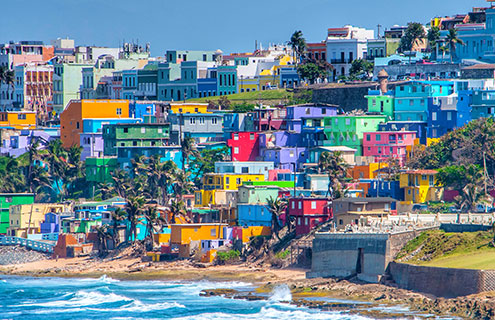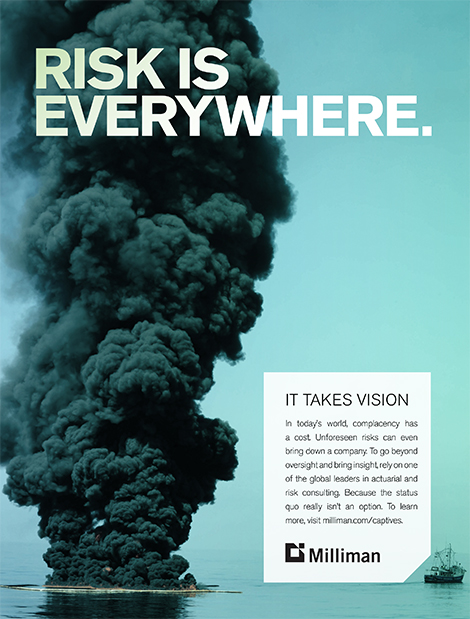Acquired by the US under the Treaty of Paris following the Spanish-American War in 1898, Puerto Rico is not a US state, rather it is an unincorporated territory...
Acquired by the US under the Treaty of Paris following the Spanish-American War in 1898, Puerto Rico is not a US state, rather it is an unincorporated territory. The impact of this is widespread; Puerto Ricans are US citizens, as they have been since 1917, but are disenfranchised at the federal level and do not have the right to vote for either the president or vice president.
The jurisdiction is governed by the US Congress but does not have a vote in Congress and has only a non-voting member of the House of Representatives. It does not have US senators but does elect its own governor, and, potentially most importantly for the captive market, federal income tax is not paid on Puerto Rican income.
This unique relationship with the US places Puerto Rico in a strange the state of ambiguity, but one that is extremely advantageous for archipelago’s captive industry.
Not too hot, not too cold
Puerto Rico is inside the US rule of law but outside of federal tax, meaning it provides the combination of an extremely hospitable tax environment with all the benefits of the protection of US law. According to Walter Keenan, CEO at Advantage Insurance, this is particularly advantageous for US-based companies.
He explains: “If you end up in a dispute you can go to US federal court, which means that those familiar with the US court system do not have to learn a new system, as they might if they were domiciled outside the US.”
It also has a large domestic insurance market and an excellent education system, which gives the domicile talented and experienced service providers and professionals.
“There are some very well qualified and well educated professionals in the market,” notes Les Boughner, chairman of Advantage Insurance, “which are in some cases being underutilised because of the low employment rate.”
The geographic location of Puerto Rico, approximately 1,000 miles from Miami, Florida, in the northeast Carribean sea, also provides the domicile with a number of advantages. It is the only jurisdiction regulated by both the National Association of Insurance Commissioners (NAIC) and the Latin American Association of Insurance Supervisors (ASSAL), and its Latin culture means it attracts a lot of interest from Latin America.
“It is a great place because it is both domestic and international,” says Boughner, “there is no other place in the world that offers that.”
“You can have a domestic US captive, an international captive, a Latin American captive all in Puerto Rico. In many cases, companies have to go to two or three different jurisdictions, with Puerto Rico they only have to go to one.”
“There are also reputational advantages from being inside US law. It is not like the offshore domiciles where you really question the degree of regulation. The banks are regulated, there is plenty of reputable attorneys and certified accountants. It presents a much more acceptable jurisdiction than some of the offshore islands.”
Regulation that is ‘just right’
Captives are regulated by the International Insurance Centre (IIC), which was launched in 2005 and is run by the Office of the Commissioner of Insurance. As the domicile falls under NAIC jurisdiction, captives are regulated to a US regulatory standard, which Boughner says provides reputational advantages.
The domicile allows a wide range of captive structures, including pure, association, protected cell, reinsurance captives and micro captives, and the captive legislation provides the regulator with flexibility to approve new structures.
Keenan states: “The framework is good and gives the regulator some latitude to approve structures that are within the four corners of the law.”
He says that no regulatory changes are currently in the pipeline, but that none are needed as “Puerto Rico can’t really do anything to make itself better at the moment”.
According to Keenan, the IIC and captives have the support of both major Puerto Rican political parties, meaning that there is “no imperative to make any changes that would set back the domicile”.
However, the support for the captive industry should not be confused with a regime that is too easygoing.
Keenan explains: “Puerto Rico wants to be seen as a high quality domicile and, so, I think people that want to do something that is not quite right don’t bother coming to Puerto Rico because they’re not going to get that result.”
“If you’re going to have a captive or any insurance business in Puerto Rico, it by definition has to be a real insurance business with all of the things that make up a good insurance company: actuarial science, audit and accounting, acceptable risk underwriting guidelines, compliance with all the anti-money laundering requirements–you name it, they have to have it here. Puerto Rico doesn’t allow cutting of corners.”
He concludes: “The Office of the Commissioner of Insurance is very supportive of the IIC and they have allocated the regulatory resources to be sure that captives and the other companies operating inside the IIC are well regulated. They’re not under regulated, they’re not over regulated, they’re well regulated.”
The goldilocks zone Puerto Rico finds itself in has helped it grow to have 470 active and licensed captives, an impressive total given the first captive was licensed in the domicile in 2009.
In 2018, 129 new captives were licensed in the domicile and there were 45 dissolutions. Boughner says the market is now “experiencing steady growth”, which is a reduction on the “exponential growth” it experienced a couple of years ago. This slowdown in growth, he notes, is “pervasive in the captive industry right now, not due to any concerns about Puerto Rico”.
A large part of the market is made up by section 831(b)-electing micro captives, but Bougher suggests this is not unique to the domicile.
He says: “If you look at the existing captive market, they’re predominantly in the 831(b) space, however, that is not an indication of what Puerto Rico’s appetite or interest.”
“If you track the growth of Puerto Rico captives and align with the growth and shift in demographic of global captives over the last 10 years, that’s where the growth has occurred.”
Outlook
Boughner believes the future is bright for Puerto Rico and is “expecting continued growth and increased interest in Puerto Rico for a variety of reasons”.
Not least of these is the potential for Latin American business.
“It is well positioned for Latin American captives,” he says, “there has been a lot of interest there.”
“Additionally, I think over the next 10 years you are going to see a lot of pure captives in Puerto Rico, and in many cases redomiciling because of the attractive tax environment.”
He adds: “There continues to be considerable interest in Puerto Rico and potential captive owners want to learn about it.”
“Not only is it on the table for consideration but it is brought up in conversations discussing every other domicile.”
“People want to talk about domicile x and Puerto Rico, domicile y and Puerto Rico.”
He observes: “There are more enquiries about Puerto Rico than any
other domicile.”
Keenan is in agreement with Boughner, and notes that though Puerto Rico is “not yet a mature market, it is one that has become widely accepted and is regularly put on the table for consideration in many captive formations”.
He believes there are two ways Puerto Rico can grow.
“Firstly, just by getting its share of new formations,” says Keenan, “and secondly, by an increase in the number of companies moving to Puerto Rico from other domiciles.”
“The market will speak over time. But if you’re considering a new captive or moving a captive, Puerto Rico is on your list of places
to consider.”
One potential stumbling block for the expansion of the market would be changes to the income tax situation if it became a US state.
He explains: “If Puerto Rico should become a state of the US, the 51st state, that would change the tax status, making it more like Vermont or South Carolina.”
The debate of whether Puerto Rico should be a US state is ongoing and its future political status is an extremely complex issue.
But what appears clear is that the current conditions are ‘just right’ for a growing captive insurance industry.





